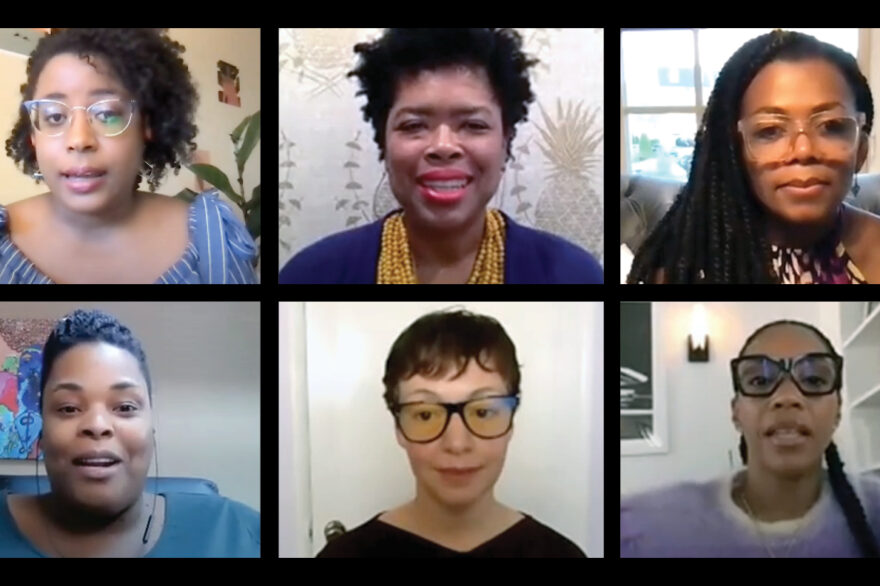The Black Birth Experience: Challenges, Joys and Justice

Our May 6 panel “The Black Birth Experience: Challenges, Joys and Justice” brought experts and TV writers together over the topic of why Black women are more likely to die from pregnancy or childbirth than women in any other race group.
This heightened risk of pregnancy-related death spans income and education levels (think Serena Williams or Beyonce), and the discussion explored the causes of these maternal health discrepancies, along with how TV depictions of the issue can help.
Watch the panel | Read our Tip Sheet
Compared to non-Hispanic white persons, Black birthing people are 92% more likely to be at risk for severe maternal morbidity such as hemorrhage and infection.
Some key findings:
- Black birthing people are also more likely to receive a caesarean birth
- Evidence points to implicit bias and racism, not race, as key causes of disparities in maternity care and maternal outcomes for Black birthing people
- The health system consistently undertreats and dismisses Black patients’ pain and symptoms compared to their white counterparts.
- Medical providers tend to spend less time with Black patients and tend to lose contact post-partum
- Black birthing people are less likely to pursue perinatal mental health care, due to stigma, lack of access, and not being provided screening tools.
The panelists included: Erika Green Swafford, a consulting producer and writer with the NBC series New Amsterdam (NBC); Helen Krieger, a writer for grown-ish (Freeform), #blackAF (Netflix) and mixed-ish (ABC); Esa Lewis, a writer and producer on black-ish (ABC); Dr. Joia Crear-Perry, an obstetrician and gynecologist in New Orleans, and the founder and president of the National Birth Equity Collaborative; Kay Matthews, founder of the Shades of Blue Project, which supports women before, during and after childbirth with community resources, mental health advocacy, treatment and support; and Priska Neely, the managing editor for the Gulf States Newsroom, a collaboration between NPR and member stations in Alabama, Louisiana and Mississippi, who served as the discussion moderator.
